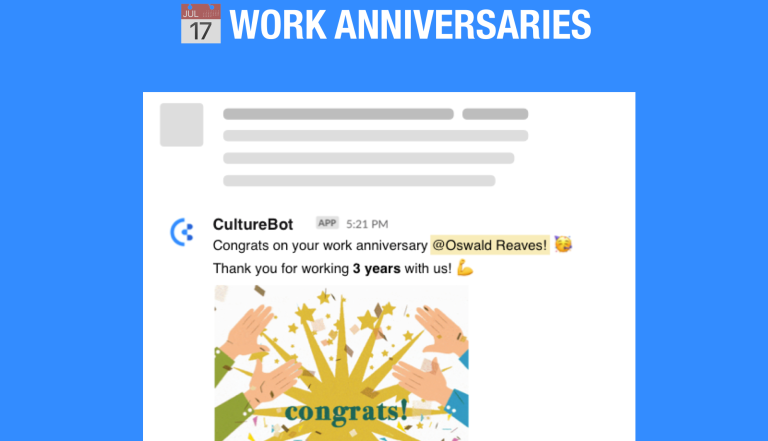
Working on a remote team has many advantages, from flexible schedules to access to global talent. However, the physical separation can also lead to feeling disconnected, hampering team cohesion and engagement. That’s why making time for intentional team building activities is critical.
Virtual team building serves an essential role in bringing remote staff together, facilitating relationship building, and fostering morale. It provides opportunities for teammates to interact in a relaxed environment outside of day-to-day work. When remote workers feel more connected with their peers, it directly translates to higher levels of collaboration, creativity, and productivity.
Where work can often feel stressful to employees, creating a fun, vibrant activity from time-to-time can have a hugely positive impact on your team morale!
Table of Contents
Virtual Team Building Activities
Remote work creates separation that can impede relationship building between teammates. That’s why implementing engaging virtual activities is key for distributed teams. Interactive online events facilitate bonding to boost morale and connectivity. Consider these virtual team building activities:
- Virtual escape rooms: These exciting online games require teammates to collaborate and solve puzzles to metaphorically “escape” scenarios like bank heists or haunted houses. The thrill of working against the clock drives participation and bonding.
- Remote scavenger hunts: Send teammates on collaborative digital hunts to uncover photos, facts or locations based on creative clues. Scavenger hunts inspire friendly competition while enabling cooperation and relationship building.
- Online trivia games: Hosting remote trivia nights lets you create fun custom quizzes on topics from pop culture to company history. Done regularly, virtual trivia builds bonds through shared experiences.
- Virtual cooking classes: Arrange interactive online cooking sessions where remote staff can chat while receiving real-time instruction on dishes to prepare in their own kitchens. Food and laughter enable memorable connections.
Virtual Team Building Games
In addition to intentional “work” activities, integrating recreational online games enables remote employees to connect more casually. Multiplayer games prompt conversations that strengthen familiarity and trust between distributed team members.
At CultureBot, we’ve teamed up with Luna Park to bring the best game experience to virtual teams. Check out their hundreds of game options here.
In addition, there are the classic go to’s. Here are some of our favorites:
Online board games
Classic games like Checkers, Chess, Monopoly, and more have multiplayer web-based versions teammates can play while talking on video chat. Board game cooperation drives deeper personal connections.
Multiplayer video games
For teams that enjoy gaming, coordinate tournaments for multiplayer favorites like Mario Kart, Fortnite, or Call of Duty. Friendly competition in virtual worlds enables teammates to see different sides of each other.
Remote Pictionary
The classic guessing game translates online through whiteboard apps and video chat. Take turns drawing while others guess to inspire laughter and teamwork.
Digital puzzles and riddles
Apps like Luna Park allow remote teams to collaboratively solve puzzles, riddles and coding challenges in real-time. Brainstorming solutions enable creativity beyond normal work.
The key is integrating games purposefully to leverage enjoyment and tackling challenges together. Afterward, discuss takeaways about strengths, weaknesses, and surprising capabilities spotted in each other.
How to Have Fun with a Remote Team
While structured activities build connections, we recommend also incorporating remote bonding experiences into normal interactions. Occasional moments of fun together let your team see each other’s fuller personalities. Consider these ideas:
Schedule regular non-work video calls
Set up short recurring video chats focused purely on non-work topics. Watercooler conversations about family, entertainment, hobbies or weekends promote familiarity.
Send care packages to team members’ homes
Mail customized gift boxes with treats, company swag, and fun items like games or toys to surprise remote staff. Thoughtful packages make employees feel valued. Our Celebrations bot has a great feature for sending gifts along with meaningful moments in your employees’ lives.

Host show-and-tell sessions to share hobbies
Dedicate meeting times for remote staff members to give brief presentations on personal hobbies, collections or talent skills to uncover hidden interests. Discovering unexpected dimensions of colleagues enables stronger connections.
Start online clubs or interest groups
Facilitate extracurricular Slack or Teams channels around hobbies like books, TV shows, sports teams, gaming communities or personal passions to connect remote staff with shared interests. Regular chatter about enjoyable activities accelerates familiarity and relationship building year-round through organic interactions.

Tips for Successful Online Team Building
Implementing virtual team building initiatives requires thoughtful coordination for maximum engagement and impact. Consider these tips when organizing remote activities:
- Keep activities short and well-structured: Limit events to 30-60 minutes to avoid boredom or losing focus. Establish clear rules and schedules to minimize confusion.
- Make participation voluntary: Don’t mandate events outside of work hours or pressure involvement. Voluntary team building encourages willing, quality interactions.
- Incorporate video calls so teams can interact: Ensure activities maximize discussion through integrated video conferencing rather than purely using chat platforms. Facial engagement strengthens connections.
- Follow up with feedback surveys: Send polls after events to collect suggestions and assess impact on morale. Adjust future plans based on constructive input.
- Provide small prizes or rewards: Offer fun virtual badges or physical rewards like gift cards or company swag for top performers during team building competitions. Incentives drive enthusiastic participation.
Key Benefits of Remote Team Building
Regular virtual team building activities may seem peripheral to concrete work objectives, but facilitating frequent positive interactions between distributed colleagues provides significant advantages:
Improved communication and bonding:
Games, activities and social conversations enable teammates to find common ground, understand communication styles, and become more comfortable connecting remotely day-to-day.
Greater creativity and problem solving:
Recreational challenges inspire innovative thinking and reveal complementary skill sets between team members that translate to collaborative work success.
Higher levels of trust and cooperation:
Vulnerability-based activities and non-professional interactions strengthen interpersonal bonds that make it easier to rely on and support each other in projects.
Increased productivity and engagement:
Distributed teams that make time for intentional relationship building through ongoing online events display higher effort, satisfaction, and work achievement according to recent research.
Wrapping It Up
The camaraderie and connectivity fueled by recurring virtual team building also enriches company culture and employee experience that pays dividends through enhanced retention.
Investing in regular online activities to unite distributed staff creates morale boosts by nurturing the communication channels, trust, and relationships that transform individual remote workers into a cohesive high-performing team.
For companies looking to integrate consistent yet casual online team building activities, a platform like Culturebot provides an ideal solution. Culturebot makes it easy to facilitate remote activities ranging from trivia and escape rooms to digital scavenger hunts and video watch parties directly through your company’s Slack workspace.
By automating reminders and event coordination over familiar digital channels, Culturebot eliminates the hassle of manual event management while driving engaging participation that brings distributed staff closer over time. Integrating a purpose-built platform turns ad hoc efforts into repeatable habits that sustain staff connectivity, creativity, and camaraderie.
~ Oswald






